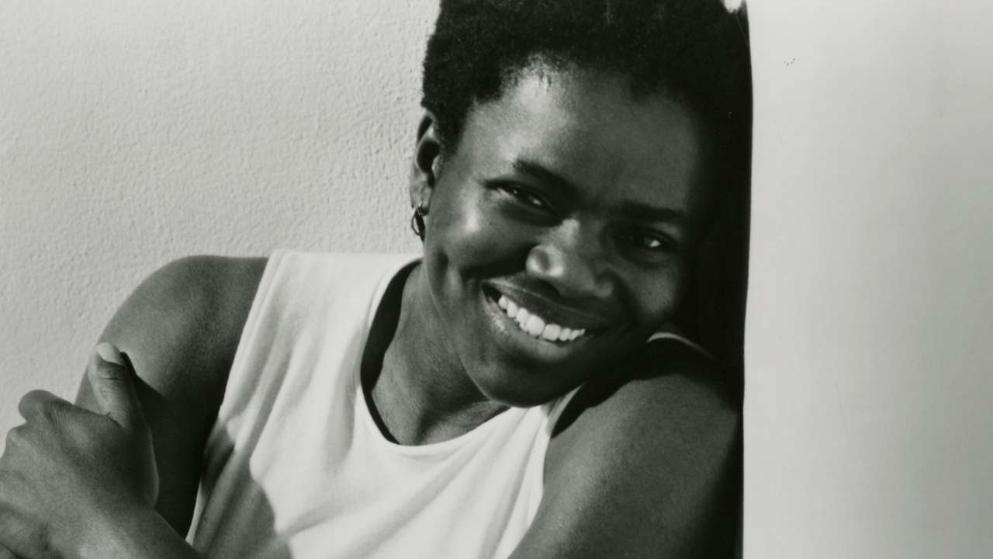By Alan Light, Rolling Stone #628, April 16th, 1992 (p. 26)
Tracy Chapman explores some new territory on her third album
« Once I assembled the songs, » says Tracy Chapman of her new album, Matters Of The Heart, « I found out that accidentally a lot of them were about dreams and expectations.” The project may not be as mystical as the title and her description indicate, but Chapman’s first release in more than two years marks a more introspective turn for the woman who made the world safe for singer-songwriters again in the late Eighties.
Though she doesn’t want to talk about songwriting chronology – one of many things she doesn’t want to talk about at this interview – at least one track on Matters Of The Heart (I Used To Be A Sailor) appeared on Chapman’s original demo tapes, which included most of the material on her 3.5 –million-selling 1988 debut, Tracy Chapman, and its widely underrated 1989 follow-up, Crossroads. Mostly, though, this album represents her first extended writing effort since the whirlwind days that saw Chapman jump from performing at tiny folk clubs to touring the world’s stadiums on Amnesty International’s Human Rights Now! Tour.
Chapman moved from Boston to San Francisco in 1990, and her familiar short, spiky dreadlocks have grown to shoulder length. But according to Chapman, 28, the new songs should not be taken as direct reflections of her life’s dizzying transitions. “Of course you’re influenced by your experiences,” she explains, “but if anything, [the success]just makes you sit down and reevaluate your life and the things that are important to you.”
The advance word on Matters Of The Heart hinted that there might be more of a band sound on this album than on her previous acoustic-guitar-based work. Some fascinating musicians appear on the album – including Vernon Reid, R&B legend Bobby Womack, E Street Band keyboardist Roy Bittan and Tom Petty guitarist Mike Campbell – but the backing music still functions primarily as the setting for Chapman’s voice and guitar.
“There are definitely things I’d like to explore musically, and I got to do some of them on this new album,”, Chapman says. “But I was sort of under some constraints – I would have liked to have more time.”
The album, coproduced by Chapman and Jimmy Iovine, had to be remixed at the insistence of her label, Elektra. As a result, she says, the sound and feel of the initial recordings were somewhat changed.
One song that stands out as a new direction for Chapman is the seven-minute-long title track, a hypnotic, circular composition. “We heard that and take it sounded a little quirky, but everyone was drawn to it,” she says. “The bass part and some things in the percussion –it just sort of evolved. It was the most surprising track we did.”
Despite its platinum sales, Crossroads was widely perceived as a disappointment simply because the shadow of the debut album loomed so large. Chapman takes on a frustrated tone discussing the commercial side of her work. “I don’t know what it is people want from me,” she says, shaking her head. “It seemed like on the first album they were willing to take what it is I have to give. I’m willing to take that gamble and hope that if people like and appreciate what you do, they’ll let you choose your direction.”
Matters Of The Heart contains her signature biting social commentary in such tracks as Woman’s Work and the first single Bang Bang Bang. Meanwhile, Chapman the activist continues to work on organizing a long-discussed tour of South Africa. Though she resists being labeled a folk or a protest singer, that is still where her roots most clearly lie, and for all the changes in Tracy Chapman’s life, Matters Of The Heart offers a continuation rather than an alteration of the direction she has pursued since her first album. “Some people may always see me as being in the same place,” she says, “but these are my values, certain things I believe.”
One line in Matters Of The Heart may jump out as a surprising sentiment coming from Chapman, so often considered cerebral or even gloomy. “If there’s a battle,” she sings, “I hope my head always defers to my heart.” When asked about the significance of this line, Chapman pauses – pauses for a painfully long time – and stops and starts several times, searching for the right words before finally explaining that “sometimes in the desire to live our lives to the fullest and reach our potential, we can make decisions that may further our aims or specific goals but in the end may threaten our humanity.”
Those who still know Chapman only from her breakthrough single Fast Car may be surprised by such vulnerability and outright stunned to hear the wide-eyed idealism of another song on Matters Of The Heart titled Dreaming On A World. But Chapman denies that this optimism represents a new direction and laughs at the perception that she’s a downbeat person. “Yeah, I’ve heard that a lot,” she says, “but I call myself a hopeful cynic”.


